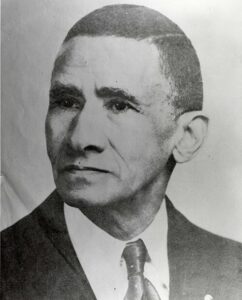Before businesses and the government placed formal emphasis on racial equity, diversity, equity, and inclusion (DEI), life in the United States and several other countries on the globe, was marked by significant racial and social inequalities. The history of racial inequity in the United States of America has deep roots, and life for marginalized racial and ethnic groups was often defined by systemic discrimination, segregation, and exclusion from many aspects of social, economic, and political life.
- Segregation and Discrimination: For much of the 19th and early 20th centuries, racial segregation was legally enforced in many places, especially in the U.S. Jim Crow laws in the South enforced racial separation in public spaces, schools, housing, and transportation. Discriminatory practices also existed in the North, though they were often less overt. However, this mistreatment and inequity of nonwhites goes back to the founding of the United States of America in the 1600 and 1700s
- Limited Access to Education and Employment: Ethnic Black Americans, as well as other non white groups called People of Color, often faced barriers to quality education and good-paying jobs. They were frequently relegated to low-wage labor and had limited opportunities for upward mobility.
- Exclusion from Political Power: Voting rights were historically denied to many racial minorities through legal mechanisms such as literacy tests, poll taxes, and outright violence. Even where the right to vote was formally granted, many faced intimidation or suppression, preventing them from fully participating in political life.
- Cultural Norms of Racial Hierarchy: Racial inequality was often embedded in societal norms, with white supremacy influencing cultural, political, and legal systems. Black people and POC were frequently depicted as inferior or subhuman in media, literature, and political discourse, reinforcing their social marginalization.
- Civil Rights Struggles: Major movements, like the Civil Rights Movement in the U.S., emerged in response to these inequities. Leaders like Martin Luther King Jr., Rosa Parks, and others before them fought for legal rights, the end of segregation, and broader societal changes which then had a lasting effect on those oppressed outside of the United States in other countries as far as the UK and South Africa.

In the decades following these movements, efforts to address racial inequity and promote diversity and inclusion became more institutionalized, especially in the latter half of the 20th century. However, disparities in wealth, health, education, and representation persist in many places, which is why DEI initiatives continue to be important today, except now, these efforts are under tremendous attack by the US government starting in 2025 with the new administration. Big companies such as superstore Walmart, John Deere and more are removing their DEI programs due to fears of the 2024 Trump administration.
So what does this mean? This could and will hurt Black Businesses overall. Discover why and how in the next article.





More Related Stories
More Black American Midwives Are Needed Across the USA After Systemic Attacks Reduced Their Numbers in the 1900s
Purchase Land & Make it an Asset, Not a Liability
Need Money To Start a Business? Apply For a Business Loan Using These Steps